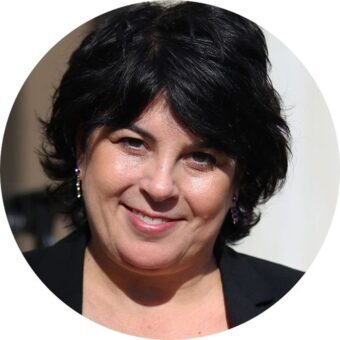
Michele
Gelfand
Michele Gelfand is a Distinguished Professor of Psychology at the University of Maryland, College Park. She the co – founder of the Society for the Study of Cultural Evolution, author of the book Rule Makers, Rule Breakers, and a recipient of numerous awards for her research on the evolution of culture and its multilevel consequences, including 2017 Outstanding International Psychologist Award.
Transcription of the video
Which domain or aspect of social life will show the most significant positive societal and/or psychological change in response to the pandemic?
I expect that we’re going to see an increase in gratitude. When we’ve been faced with a collective disaster, we really begin to appreciate the small things in life that we’ve taken for granted. I think we’re going to be more grateful for a variety of things, even for things, like eating out going to concerts, being able to hug our friends again, and our loved ones and even for speaking on a crowded subway. In that sense, I think it’s going to produce a lot of collective gratitude.
What kind of wisdom will people need to capitalize on the positive societal and/or psychological change after the pandemic?
We need to slow down, and just notice; notice things every day, the great gifts that we have in our lives that we really take for granted. I think many of us now are starting to keep gratitude journals to think, what are the small things up to the big things that we really realized that we should be noticing, first and foremost, that are so precious to us even, like I mentioned things that are small things like being able to sit outside with a friend, or hold someone’s hand and hug people, we have to slow down, to be able to do that, the better off we’ll be able to really kind of foster that positive change.
Which domain or aspect of social life will show the most significant negative societal and/or psychological change in response to the pandemic?
We’re going to need to find a way to forgive, the massive mistakes that we’ve made and to build trust, at least in the United States, where I’m located, in how we dealt with the pandemic. In the past, in our country, after 9/11, after World War Two, we really stood united. And we were able to sacrifice liberty for new rules, to overcome adversity. And this makes sense that when we experience a collective threat we need to come together. But during COVID-19, we saw a useless partisan conflict, great resistance in different parts of the country to things like wearing masks and social distancing, and we lost lives that could have been prevented. Have we been a stronger, more united culture and I think that we’re going to need to really reckon with those mistakes.
What kind of wisdom will people need to master to overcome major negative societal and/or psychological changes after the pandemic?
I think about it as requiring a collective learning orientation. We need to really come together, understand and learn from our mistakes, which means that we shouldn’t just look past it after we find a vaccine, we hope, when we start getting back to normal, we still need to really come together as communities discuss what happened, across multiple levels, whether its political, economic, cultural, so that we can learn from our mistakes and plan for what we can do better next time we face a collective threat.
What piece of wisdom do people need to make it through the pandemic?
What helps me is to think about it as temporary, and to have hope that we’re going to be back to normal some day. If we think about it as temporary, and we have hope, that it can give us the patience that we need to do what’s right now, and right now, it means basically following rules that will keep us safe. And I just have some sort of sense of solace that one day we’ll be able to re-enter our normal ways of living. And having hope, I think really helps.
Themes discussed in this interview

